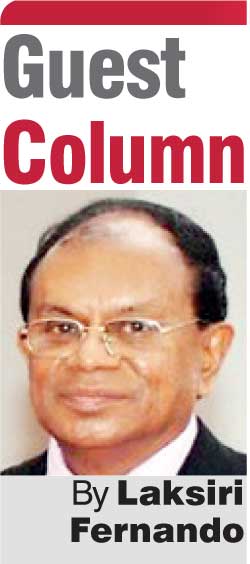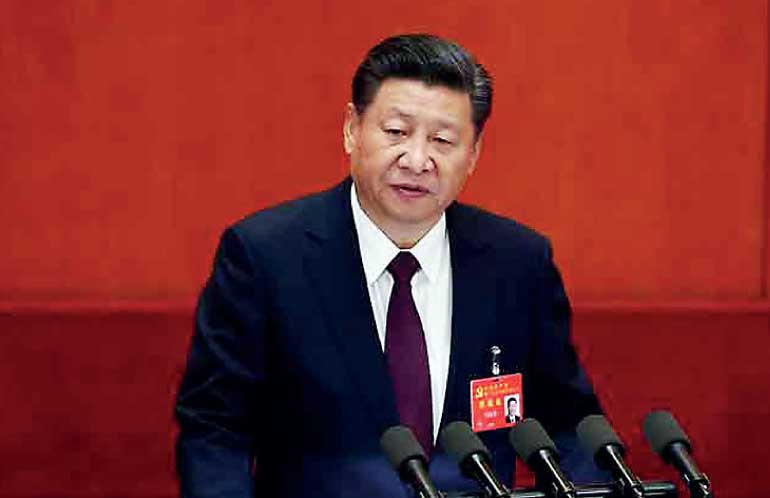Simon Denyer of the Washington Post was not so kind declaring it as a “call on the party to tighten its grip on the country”. He placed more attention to the security arrangements and cleaning out of the dissidents from the city as preparation for the congress. He further said it was “a far-reaching agenda for the Communist Party, outlining a vision of total control, not only of the nation’s economy and the Internet but also of culture, religion and morals.” He characterised Xi speaking beneath gigantic red drapes and a huge hammer and sickle in the mammoth Great Hall as a monument to ‘communist authoritarianism’.
To Tom Phillips of The Guardian (Australian edition), it was slightly a different story. To him, ‘Xi Jinping has heralded the dawn of a “new era” of Chinese politics and of course power.’ He had more reporting than interpretation. He said ‘Xi, who has sought to portray himself as a strong and stable international statesman since

last year’s election of Donald Trump, also painted China as a responsible global power that was committed to tackling shared dangers such as climate change.’
The first report from the BBC by John Sudworth was not that soft. It was “a speech that spells power”. “If anyone doubts that China retains an unreformed Leninist political system, then the goings-on inside the Great Hall of the people over the past few hours should put them straight,” he said. One criticism was about Xi’s long speech. Sudworth also said, ‘If anyone thought China would inevitably become politically freer, it is wrong.’ He concluded, ‘China’s rigid political Leninism is here to say.’ However, later several reports from BCC China Editor Carrie Gracie was different. She interviewed several in the Beijing Metro and reported ‘Beijing’s metro gives a thumbs-up to Xi Jinping’s speech’.
What did The Australian say? Reported by Rowan Callick it claimed ‘no ranting, no raving’. Then what? ‘It was a speech that claimed world power.’ He further said, ‘but the message was thoroughly combative’. He counted how many times Jinping uttered the word ‘army’ ‘China’ and ‘party’. Those were the key words that he identified, not ‘market,’ ‘reform’ or ‘development’. He had some interesting comments about the hierarchy behind Xi Jinping on the stage – the party elite. “Of the 264 people there, just 31 were women,” he exclaimed.
Takeaways and new era?
There were people who talked about different takeaways; three, five or even seven, from Xi’s speech. However, Chris Buckley and Keith Bradsher of The New York Times were more objective highlighting ‘five takeaways’ from the speech. I would go along those lines. They were:
- Economic changes, not market reforms
- Foreign policy and military modernisation
- Taiwan and Hong Kong
- Security at home, too
- Leading China into a new era
It is wrong to say that Xi has given up the economy and promoting the military. It is not the case. But there can be a new orientation in the economic policy, not going further on the market reforms but giving priority to people’s needs. Past market reforms have created considerable economic inequalities and ‘winners and losers’. Therefore, it is time to correct or ameliorate them. That is what he said. This is what has found a positive chord with the people in Beijing that Carrie Gracie has interviewed.
Xi was also realistic or modest enough to announce a ‘moderately prosperous society’ by 2025, while our ‘Vision 2025’ promises absolutely ‘prosperous’ or rather a ‘rich’ economy by that time!
People are enthusiastic about Xi’s line of thinking that ‘homes are for living and not for speculation,’ Gracie has reported. Can we in Sri Lanka have the same kind of thinking that ‘universities (at least the medical ones!) are for education and not for profit making? That is a thought came to my mind when reading the reports.
They, the Chinese people, were also pleased to hear that Xi’s campaign against ‘tigers, flies and foxes’ would continue. Tigers are the big officials who steal billions, the flies are the small-time officials who extort hundreds. Foxes, like in Sri Lanka, are those who send extorted money to foreign tax havens. On the economy, Xi has however made a fleeting promise to support and encourage private enterprises while strengthening and reforming state enterprises.
Xi undoubtedly was speaking in terms of nationalism and patriotism. “China will continue to play its part as a major and responsible country,” he has assured. He has also emphasised the ‘One Belt, One Road Initiative’ (BRI) as south-south cooperation and beyond. It is part of his foreign policy.
Xi has not mentioned Donald Trump or Kim Jong-un (US or North Korea). However, he has taken a hardline on artificial islands in the South China Sea. This could be a worry for the Asian neighbours, if not for the US. No mention of India or the border dispute with her either. Relations with India is also a sticking point in China’s foreign policy. He nevertheless has outlined reforms in the military, ‘professionalisation of officers and more innovation in weaponry’. By mid- century, China’s military would be first class and that is what he has said, without details.
Xi has perhaps offered a carrot to Hong Kong, but a stick to Taiwan. He said that Hong Kong can govern itself, but patriots playing a major role. He has indicated his displeasure about some recent developments and full ‘western’ democracy in Hong Kong. “We will never allow anyone, any organisation, or any political party, at any time or in any form, to separate any part of Chinese territory from China.” The major ‘threat,’ if you wish to call such, was against Taiwan, deriving from ‘One-China’ policy.
‘Security at home’ is both about ‘social security’ and ‘policing’ with emphasis on rule of law. On the question of policing, he has already set up a National Security Commission, to deal with social unrest. On the other hand, he has said: “What we now face is the contradiction between unbalanced and inadequate development and the people’s ever-growing needs for a better life.”
Underlining or understanding some reasons for the growing social unrest, this appears return back to socialist values or socialist theory. Xi has unleashed not only a social welfare programme, but also a social justice programme, emphasising the importance of “improving people’s lives, reducing pollution, improving schools and health care, and ensuring fairer access to courts and the justice system”.
The last takeaway perhaps is for the world at large. Xi has talked about a ‘new era’ (that he has unleashed), and explained, “It will be an era that sees China moving closer to the centre stage.” It is traditional for China or the Chinese to consider their country as the middle country or the centre of the world (Zhongguo). What that means in modern circumstances is yet to be seen. Therefore, ‘whither China?’ We may have to wait for the next couple of years to gather the full essence.
Sri Lankans, or Asians in general, can be happy with the way China is progressing. What they would dislike is a conflict between China and India, or China with any other country. Their utmost effort should be to prevent such a catastrophe.

 last year’s election of Donald Trump, also painted China as a responsible global power that was committed to tackling shared dangers such as climate change.’
last year’s election of Donald Trump, also painted China as a responsible global power that was committed to tackling shared dangers such as climate change.’